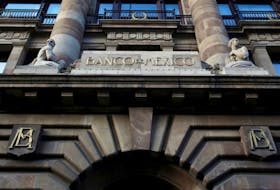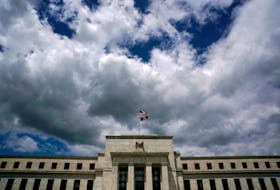SHANGHAI/SINGAPORE (Reuters) - China's state asset regulator has urged central government-owned companies to better manage risks in overseas derivative trading as it increases regulatory oversight to prevent future trading losses.
The State-owned Asset Supervision and Administration Commission (SASAC) said as of now Beijing-controlled state companies can only use financial and commodities derivatives to hedge risks, and banned any form of speculative activities.
Industry players say the new ruling aims to rein in speculative trading activity and avoid losses, adding they do not see a significant impact on how state-owned companies operate as they don't frequently execute many short-term trades.
A Shanghai-based trader said that with metals trading, for example, most state companies would not hold many speculative positions.
"Its futures trading department may make arbitrage positions, but overall, I don't see a big impact from this," said the trader, who declined to be identified as he was not authorized to speak to the media.
"State companies dealing with non-ferrous metals like state-owned copper smelters are more compliant in terms of hedging and have less speculative positions," he added, citing Jiangxi Copper Co <600362.SS>, one of China's biggest copper producers, and Yunnan Copper <000878.SZ> as examples.
Both Jiangxi Copper and Yunnan Copper did not immediately respond to a request for comment.
A trader at state-owned China Minmetals Corp, China's biggest metals trading firm, also told Reuters there would be no impact on the company because its derivatives management was already very strict.
SASAC said it is strengthening its rules after finding unidentified cases of mismanagement regarding overseas derivative trading.
On its website, it said firms must set up an effective risk-management system, and report derivative trading activities to the regulator on a regular basis.
"Companies' derivative businesses have undergone new trends and new changes in recent years, the current regulatory mechanism may be outdated to meet the real demands," the regulator said.
Under the new rules, SASAC caps hedging volumes at 90% of companies' annual turnover of physical transactions and production. Hedging activities for trading purposes should not exceed 80% of the physical volumes under the new regulations.
State refiner Sinopec Corp <0386.HK> lost nearly $700 million in late 2018 in one of China's largest derivatives trading losses in nearly a decade.
Sinopec has not provided further details so far beyond suspending two senior officials and blaming "inappropriate trading strategies" in crude oil hedging. It didn't immediately respond to requests for comment on the new SASAC rules.
(Reporting by Samuel Shen, Brenda Goh and Emily Chow in Shanghai; Chen Aizhu in Singapore, Hallie Gu, Tom Daly and Muyu Xu in Beijing; Editing by Catherine Evans, Kenneth Maxwell and Jacqueline Wong)








